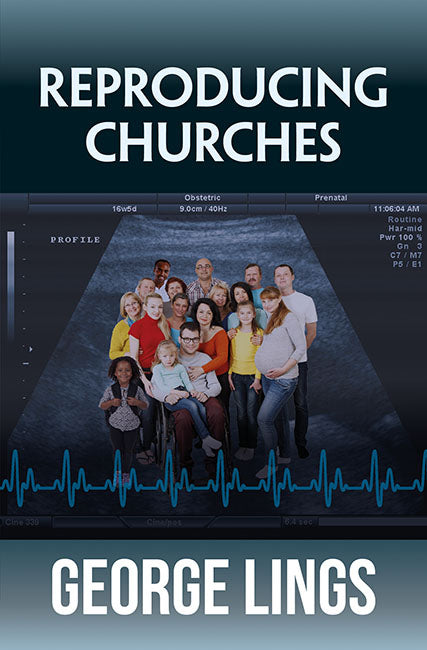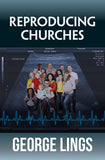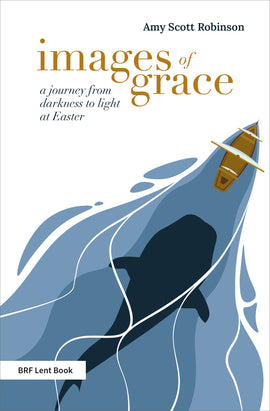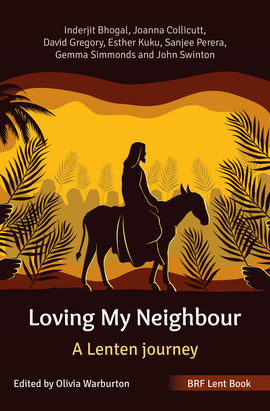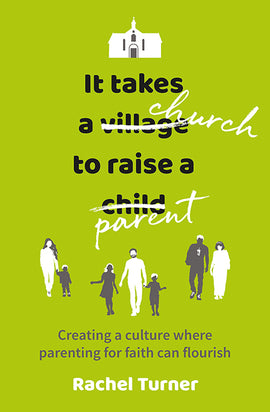Reproducing Churches
This book investigates the theological basis for church planting and creating fresh expressions of church. Based on extensive research, senior church planting authority George Lings argues that the church has a divine calling and capacity to reproduce, albeit in ways that are intentionally non-identical. Using the doctrine of the Trinity, as well as key passages throughout scripture, he shows how such reproduction fulfills the mission of God. The book also includes many practical examples drawn from church history, to help apply the message to congregations today.
Digital Product - This title is now out of print but is still available digitally. Please click the button below to buy on Kindle or click below to visit our eBooks collection to buy this product for your smartphone and/or tablet. - Go to eBooks
| Title | Reproducing Churches |
| Author | George Lings |
| ISBN | |
| Description | This book investigates the theological basis for church planting and creating fresh expressions of church. Based on extensive research, senior church planting authority George Lings argues that the church has a divine calling and capacity to reproduce, albeit in ways that are intentionally non-identical. Using the doctrine of the Trinity, as well as key passages throughout scripture, he shows how such reproduction fulfills the mission of God. The book also includes many practical examples drawn from church history, to help apply the message to congregations today. Contents
|
| Details |
|
This book investigates the theological basis for church planting and creating fresh expressions of church. Based on extensive research, senior church planting authority George Lings argues that the church has a divine calling and capacity to reproduce, albeit in ways that are intentionally non-identical. Using the doctrine of the Trinity, as well as key passages throughout scripture, he shows how such reproduction fulfills the mission of God. The book also includes many practical examples drawn from church history, to help apply the message to congregations today.
Contents
- Introduction: why this book?
- 1 Different lenses, different views of the Church
- 2 Creation and covenant's mandate to reproduce
- 3 The reproductive strand in the kingdom and the Gospels
- 4 The Trinity and the Church seen as community-in-mission
- 5 Looking to Jesus the pioneer
- 6 Following Jesus in dying to live
- 7 The Holy Spirit and the surprises in reproduction
- 8 Christendom's eclipse of a reproducing Church
- 9 Reproduction and the classic 'four marks' of the Church
- 10 The useful outworking of the reproductive strand
- 11 Rehabilitating the Church
Church Times 21.7.17
Review by Stephen Cottrell, Bishop of Chelmsford of God's Belongers: How people engage with God today and how the Church can help by David Walker and Reproducing Churches by George Lings
Once in a while, a book comes along that changes the way you look at things. Here are two.
David Walker's delightfully titled God's Belongers analyses the different ways in which people express their belonging to church and their engagement with God, and suggests new strategies that will help the local church understand and provide for this belonging.
Based on extensive research of church attendance at rural harvest festivals and Christmas carol services, the central thesis of this book is that regular churchgoing is not the only way in which Christian belonging is expressed.
On one level, this is completely obvious. Most churches, however, persist with a gold standard of 'every-Sunday-morning' belonging, and all evangelistic endeavour is geared towards achieving this. But, as Walker's well-researched and well-argued book unfolds, we find that belonging can be measured in other ways, and this is more to do with personality and circumstance than commitment.
So, the one who comes less often is not necessarily less committed. Someone whose primary belonging comes through relationships, and who wishes to express this in service, may never come every week. But his or her 'lived-out' discipleship, day by day, demonstrates a commitment equal to any weekly communicant. If weekly attendance is the only goal, this person's faith development may be stymied, and the church's ability and flexibility to grow in different ways diminished.
Put this alongside the vastly changed pattern of work, leisure, and family life in Britain today, and the impact on church life is plain to see. Strategies for evangelism and discipleship need to work with the grain of these different types of belonging, not against them.
The development of Fresh Expressions in the Church of England is one such example of helping people to belong differently.
Fresh Expressions of Church is not a stepping-stone towards the so-called 'real church' of Sunday morning. Worshipping in a variety of cultural styles, meeting in different places and different formats and at different times, Fresh Expressions have enabled the Church to broaden its reach.
This has been a remarkable story of missional and ecclesiological enterprise, and, although many people have played a significant part in this story, none has done more than George Lings. His ministry as theologian, researcher and church-planter has provided the impetus and inspiration for the Church to try new things. He has also led the way in enabling the Church to reflect on and learn from these experiments.
All this is brought together in Reproducing Churches. Lings explains and develops the basic thesis that reproduction is inherent in what it means to be the Church, not merely an optional function that some may choose. In other words, for the Church to be the Church it must reproduce. Based, again, on extensive research and vast experience, this book is probably the best available handbook for understanding church-planting and Fresh Expressions, and seeing how the Church can become what it is meant to be be. Put these two books together, and every church will be rethinking its evangelistic strategy.
The Rt Revd Stephen Cottrell, Bishop of Chelmsford

